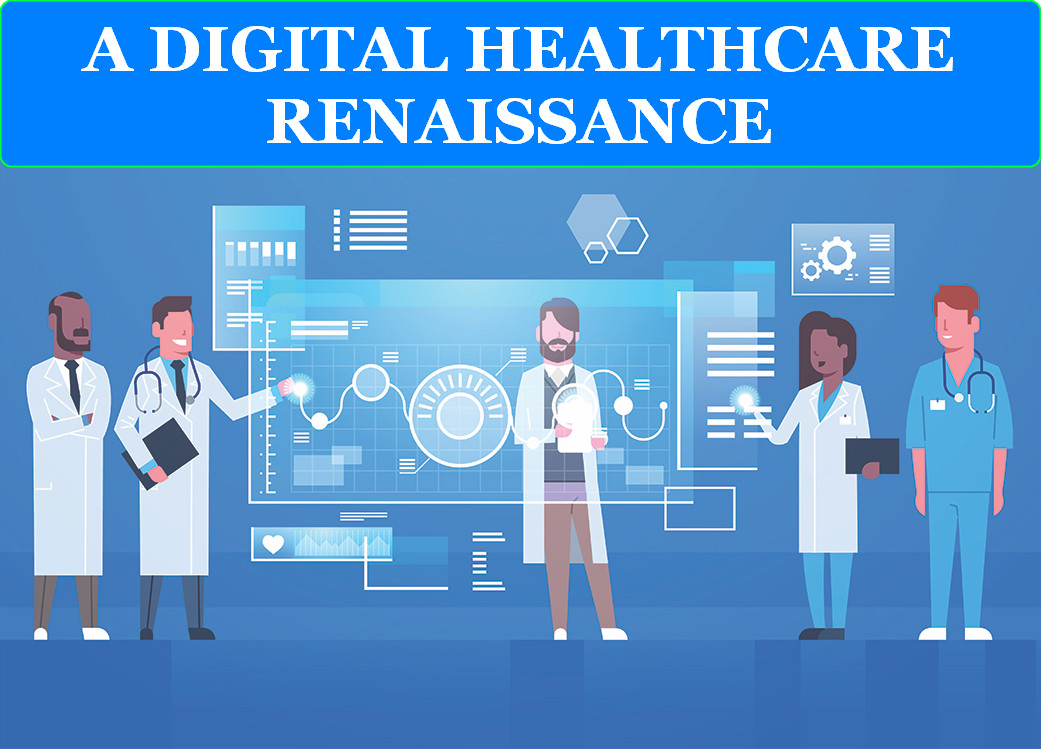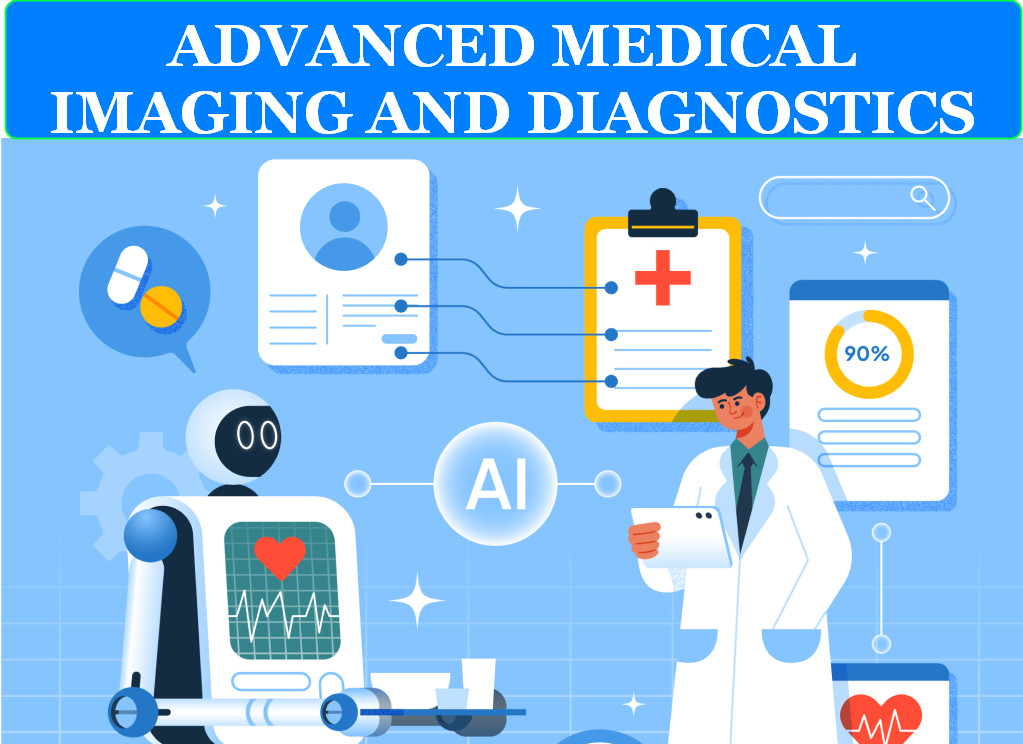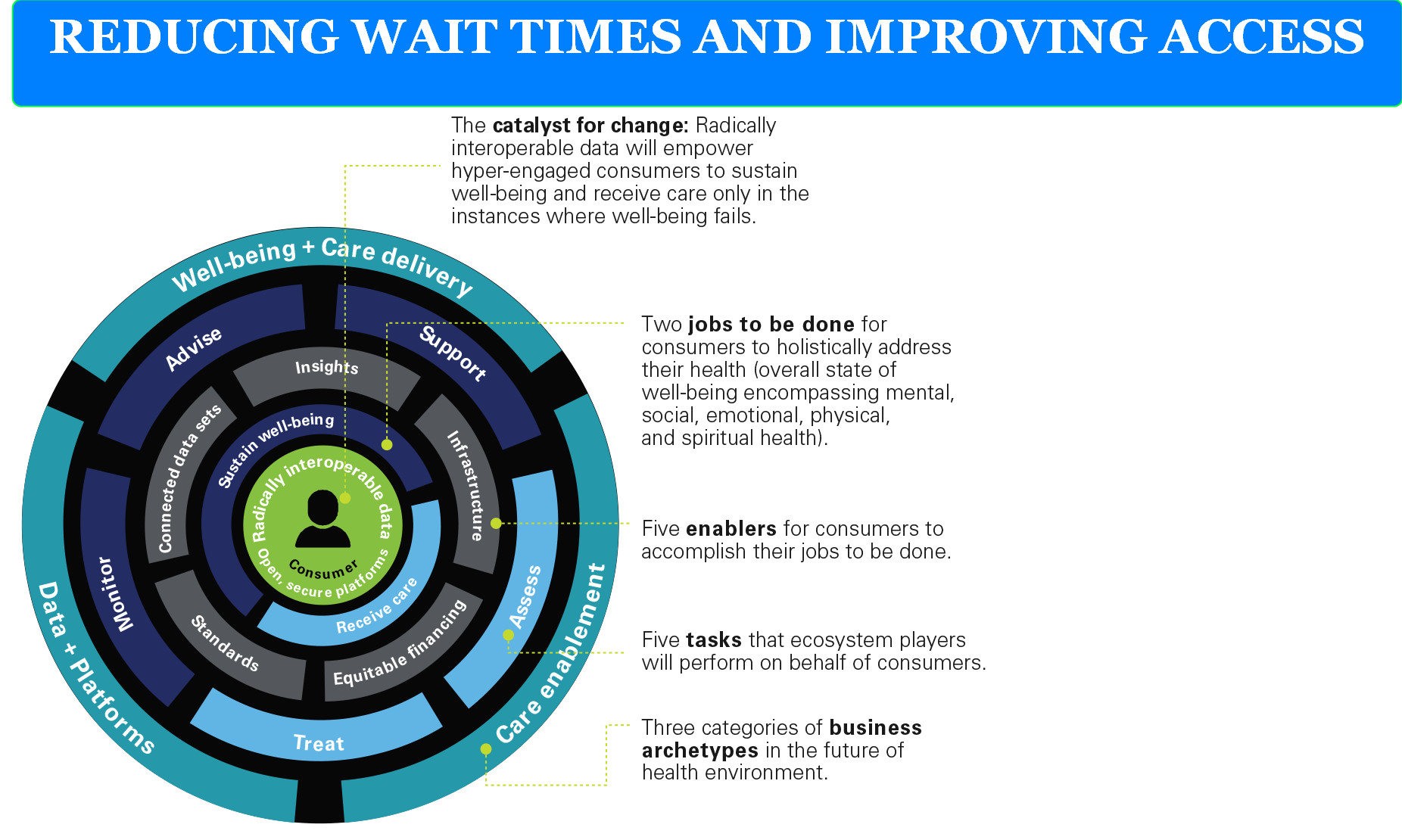CANADA’S MEDICAL CLOUD AI REVOLUTION: PIONEERING HEALTHCARE INNOVATION THROUGH DIGITAL TRANSFORMATION

Exploring how Canada is reshaping healthcare delivery with advanced AI technologies, cloud computing platforms, and collaborative innovation while addressing healthcare system challenges Canada’s healthcare system embracing AI technologies for improved patient care and system efficiency
INTRODUCTION: A DIGITAL HEALTHCARE RENAISSANCE IN MEDICAL CLOUD AI IN CANADA
Canada stands at the forefront of a transformative era in healthcare, where artificial intelligence and cloud computing are converging to address some of the nation’s most pressing healthcare challenges. With annual healthcare spending reaching approximately CAD $330 billion—equivalent to 12.2% of GDP—Canada faces mounting pressure to improve efficiency while maintaining the quality of care that defines its universal healthcare system. The integration of medical cloud AI represents not just a technological advancement, but a fundamental reimagining of how healthcare can be delivered more effectively, equitably, and sustainably across the vast Canadian landscape.
The potential impact is staggering: according to McKinsey analysis, AI implementation at scale could reduce Canada’s net healthcare spending by 4.5 to 8.0 percent annually, translating to CAD $14 billion to CAD $26 billion in savings while simultaneously improving patient outcomes and staff experiences. This digital transformation is already underway, with 87% of Canadian healthcare organizations reporting AI usage, positioning Canada as a global leader in healthcare technology innovation.

Digital transformation initiatives revolutionizing healthcare delivery A Across Canada Live Assets
THE CANADIAN HEALTHCARE LANDSCAPE: CHALLENGES AND OPPORTUNITIES
UNIVERSAL HEALTHCARE MEETS MODERN CHALLENGES
Canada’s universal healthcare system, while providing comprehensive coverage to all citizens, faces unprecedented challenges that make the adoption of medical cloud AI not just beneficial but essential. The country’s aging population, increasing prevalence of chronic diseases, and rising healthcare costs create a perfect storm that demands innovative solutions.
The Fraser Institute’s assessment of Canada’s healthcare performance reveals concerning trends: the country ranks last or near-last on four indicators of timeliness of care compared to other developed nations. Canadians can expect to wait an average of 5.5 weeks for a CT scan and over 10 weeks for an MRI, highlighting the urgent need for efficiency improvements that AI and cloud computing can provide.
GEOGRAPHIC DISPARITIES: Canada’s vast geography presents unique challenges in healthcare delivery, particularly for remote and rural communities. Cloud-based AI solutions offer unprecedented opportunities to extend specialist expertise to underserved areas, ensuring that geographic location no longer determines access to high-quality care.
HEALTHCARE WORKER SHORTAGES: Like many developed nations, Canada faces significant healthcare workforce shortages. AI technologies serve as force multipliers, enabling healthcare professionals to deliver higher-quality care to more patients while reducing administrative burden and preventing burnout.
GOVERNMENT INVESTMENT AND STRATEGIC VISION
The Canadian government has demonstrated substantial commitment to AI innovation with Budget 2024 announcing a CAD $2.4 billion investment to secure Canada’s AI advantage. This includes CAD $2 billion to support access to compute resources and AI infrastructure, creating the foundation necessary for widespread adoption of medical cloud AI across the healthcare system.
NATIONAL AI STRATEGY: Canada’s approach to AI in healthcare is characterized by collaborative federalism, with federal investments supporting provincial healthcare systems while maintaining local autonomy in implementation. This model allows for innovation while respecting the constitutional division of healthcare responsibilities.
RESEARCH AND DEVELOPMENT EXCELLENCE: Canada’s world-renowned AI research institutes—including Amii in Edmonton, Mila in Montreal, and the Vector Institute in Toronto—are actively translating academic research into practical healthcare applications, creating a robust pipeline of innovation.
LEADING HEALTHCARE AI INITIATIVES ACROSS CANADA
UNITY HEALTH TORONTO: CANADA’S AI HEALTHCARE PIONEER
Unity Health Toronto has emerged as Canada’s undisputed leader in hospital-based AI solutions, having launched more than 50 artificial intelligence and analytics tools into clinical practice. This remarkable achievement positions Unity Health as one of the most advanced AI-integrated healthcare systems globally.

Advanced medical imaging technology at Unity Health Toronto supporting AI-powered diagnostics
DATA SCIENCE AND ADVANCED ANALYTICS (DSAA) TEAM: The hospital’s dedicated DSAA team comprises talented data engineers, data scientists, software developers, and product managers who collaborate with clinical leaders to create data-driven solutions. Their expertise spans epidemiology, computer science, engineering, biostatistics, and econometrics, enabling comprehensive approaches to healthcare challenges.
ENTERPRISE DATA WAREHOUSE: Unity Health has developed a cutting-edge Enterprise Data Warehouse that enables real-time analytics and supports the development and deployment of AI tools across all aspects of patient care. This infrastructure serves as the backbone for their extensive AI implementation program.
CLINICAL AI APPLICATIONS: The hospital’s AI tools are actively helping clinicians make better decisions, increase hospital efficiency, and improve patient care outcomes. These applications range from predictive analytics that identify patients at risk of deterioration to workflow optimization tools that streamline hospital operations.
HEALTH AI ACADEMY: In partnership with KPMG and Signal 1, Unity Health has created a national training initiative funded by the DIGITAL Supercluster. This program trains health professionals from across Canada on AI and advanced analytics, deepening understanding of AI development, procurement, and implementation among Canadian health system leaders.
SCALE AI MONTREAL: CATALYZING NATIONAL HEALTHCARE INNOVATION
Montreal’s Scale AI has emerged as a critical catalyst for healthcare AI innovation across Canada, working with hospitals nationwide to test and implement new AI applications. This initiative represents the collaborative spirit that characterizes Canada’s approach to healthcare AI development.
Multi-Hospital Collaboration: Scale AI facilitates partnerships between technology developers and healthcare institutions across Canada, enabling rapid testing and deployment of innovative AI solutions. These collaborations help ensure that successful innovations can be scaled nationally rather than remaining isolated to individual institutions.
Research Translation: The organization serves as a bridge between academic research and practical clinical applications, helping to translate cutting-edge AI research from Canadian universities into tools that directly benefit patient care.
PROVINCIAL LEADERSHIP AND INNOVATION
ONTARIO’S HEALTHCARE AI ECOSYSTEM: Ontario has established itself as Canada’s healthcare AI hub, with numerous hospitals, research institutions, and technology companies collaborating on groundbreaking initiatives. The province’s investment in AI research and development has created a thriving ecosystem that benefits healthcare providers across Canada.
QUEBEC’S AI FOR HEALTH INITIATIVE: Quebec, home to Mila (one of the world’s leading AI research institutes), has developed comprehensive strategies for integrating AI into healthcare delivery. The province’s bilingual healthcare system provides unique opportunities for developing AI solutions that can serve diverse populations.
BRITISH COLUMBIA’S DIGITAL HEALTH STRATEGY: British Columbia has implemented innovative cloud-based healthcare platforms that serve as models for other provinces. The province’s focus on interoperability and patient-centered design has created scalable solutions for healthcare AI implementation.
REVOLUTIONARY AI APPLICATIONS IN CANADIAN HEALTHCARE
LIFE-SAVING EARLY WARNING SYSTEMS
One of the most dramatic demonstrations of AI’s potential in Canadian healthcare comes from recent research showing that AI-powered early warning systems can reduce unexpected hospital deaths by 26%. This groundbreaking finding, from a comprehensive Canadian study, illustrates the life-saving potential of properly implemented medical AI systems.
AI-powered healthcare applications transforming patient care across Canadian hospitals Celestial Systems
Predictive Analytics for Patient Safety: These AI systems can monitor hundreds of patient variables simultaneously—including lab results, vital signs, medication responses, and clinical observations—to identify patients at risk of deterioration before traditional warning signs become apparent. This capability represents a fundamental shift from reactive to proactive healthcare.
Real-Time Clinical Decision Support: AI algorithms provide healthcare professionals with real-time insights and recommendations, enabling faster and more accurate clinical decision-making. These systems serve as intelligent assistants that augment human expertise rather than replacing it.
Population Health Management: Advanced analytics platforms can identify trends across large patient populations, enabling healthcare systems to implement targeted interventions that improve outcomes while reducing costs.
Swift Medical: Digital Wound Management Revolution
Swift Medical, a Canadian healthcare technology company, exemplifies how AI can transform specific aspects of clinical care while generating measurable improvements in patient outcomes. The company’s AI-powered digital wound management platform demonstrates the practical benefits of medical cloud AI implementation.
Computer Vision and Machine Learning: Swift Medical’s platform combines mobile devices with AI-powered computer vision and machine learning algorithms to assist healthcare professionals in accurately documenting, measuring, and monitoring wounds. This technology transforms subjective assessments into objective, quantifiable data that supports evidence-based treatment decisions.
Measurable Clinical Outcomes: The company reports impressive results from its AI implementation:
- 14% reduction in wound-related hospitalizations
- 7% decrease in wound-related emergency visits
- 62% reduction in length of stay for wound-related admissions
These outcomes demonstrate how targeted AI applications can generate significant improvements in both patient care and healthcare system efficiency.
Cloud-Based Care Coordination: The platform’s cloud-based architecture enables seamless care coordination between different healthcare providers, ensuring continuity of care as patients move between different care settings.
ADVANCED MEDICAL IMAGING AND DIAGNOSTICS
Canada’s leadership in medical imaging AI reflects the country’s commitment to leveraging technology for improved diagnostic accuracy and efficiency.

Advanced AI-powered medical imaging systems enhancing diagnostic capabilities in Canadian healthcare Celestial Systems
CANADIAN ASSOCIATION OF RADIOLOGISTS AI INITIATIVE: The CAR has positioned medical imaging as uniquely suited to lead AI implementation in medicine, recognizing that imaging generates vast amounts of data that can be effectively analyzed by AI algorithms to improve diagnostic accuracy and speed.
CORTECHS.AI HEALTH CANADA APPROVAL: This Canadian AI company has received Health Canada approval to expand sales of AI-powered imaging solutions across North America, demonstrating the regulatory pathway for AI medical devices in Canada and the country’s role in developing globally competitive healthcare AI solutions.
SUBTLEHD MRI ENHANCEMENT: This breakthrough technology has gained Health Canada approval to support MRI efficiency improvements, addressing Canada’s urgent need for faster MRI access. The system delivers improved efficiency and image quality, helping to reduce the lengthy wait times that characterize Canadian medical imaging.
UNIVERSITY OF WATERLOO AI RESEARCH: Canadian universities are conducting cutting-edge research in medical imaging AI, with researchers developing new approaches to improve diagnostic accuracy while reducing the data requirements for AI model training.
CLOUD COMPUTING INFRASTRUCTURE AND PLATFORMS
GOVERNMENT CLOUD SERVICES STRATEGY
Canada’s approach to cloud computing in healthcare is guided by comprehensive strategies that balance innovation with security and privacy requirements. The government’s Application Hosting Strategy provides direction for departments and agencies to evaluate cloud hosting solutions while maintaining strict security standards.

Advanced cloud computing infrastructure supporting healthcare AI applications across Canada Daffodil Software
PRIVACY AND SECURITY FRAMEWORK: Canadian healthcare cloud implementations must comply with strict privacy regulations, including provincial health information protection acts and federal privacy legislation. This regulatory framework ensures that patient data remains secure while enabling the data sharing necessary for AI development and deployment.
INTEROPERABILITY STANDARDS: Canada’s federal structure requires cloud platforms that can operate across provincial boundaries while respecting local governance requirements. This has led to the development of innovative interoperability solutions that serve as models for other federated healthcare systems.
INDIGENOUS HEALTH CONSIDERATIONS: Canada’s commitment to reconciliation with Indigenous peoples includes ensuring that AI and cloud technologies serve Indigenous communities effectively while respecting traditional knowledge and cultural values.
PROVINCIAL CLOUD PLATFORMS AND DIGITAL HEALTH NETWORKS
ONTARIO HEALTH’S DIGITAL INFRASTRUCTURE: Ontario has developed comprehensive digital health networks that integrate cloud computing with AI capabilities to transform patient care. These platforms enable seamless information sharing between healthcare providers while maintaining patient privacy and security.
CANADA HEALTH INFOWAY: This national organization has played a crucial role in developing standards and infrastructure for digital health across Canada. Their work on cloud computing frameworks has enabled provincial health systems to adopt AI technologies more effectively.
DIGITAL HEALTH CANADA: This national association provides leadership and guidance on digital health adoption, including cloud computing and AI implementation. Their competency requirements and best practice guidelines help ensure successful technology adoption across the healthcare system.
CANADIAN MEDICAL AI STARTUPS AND INNOVATION ECOSYSTEM
LEADING AI HEALTHCARE COMPANIES
Canada’s vibrant healthcare AI startup ecosystem includes numerous companies that are developing innovative solutions for both domestic and international markets.

Canada’s AI-powered healthcare innovation ecosystem driving medical technology advancement Digital Technology Supercluster
ABCELLERA: This Vancouver-based biotechnology company uses AI to discover antibody-based medicines, representing Canada’s leadership in AI-powered drug discovery. The company’s platform can search through millions of immune cells to identify optimal therapeutic antibodies.
DEEP GENOMICS: Toronto-based Deep Genomics uses AI to understand how genetic variations cause disease and to develop new medicines. The company’s approach combines machine learning with biological insights to accelerate drug discovery and development.
BLUEDOT: This Toronto-based company gained international recognition for its AI-powered infectious disease surveillance platform, which identified the COVID-19 outbreak before traditional surveillance systems. Their work demonstrates the potential for AI to enhance public health responses.
CLARIUS: This Vancouver company has developed AI-powered portable ultrasound systems that bring advanced imaging capabilities to remote and resource-limited settings. Their cloud-connected devices enable expert consultation regardless of location.
BENCHSCI: This Toronto-based company uses AI to accelerate biomedical research by helping scientists find the most relevant experiments and reagents for their research. Their platform has been adopted by leading pharmaceutical companies and research institutions worldwide.
HEALWELL AI: This Canadian company has developed AI-powered clinical co-pilots that enhance preventative healthcare and improve patient outcomes. Their solutions focus on identifying patients at risk and supporting proactive interventions.
INNOVATION FUNDING AND SUPPORT
DIGITAL Technology Supercluster: This national initiative has announced CAD $26 million in AI-powered projects to drive innovation in Canadian healthcare. These investments support collaborative projects between technology companies, healthcare institutions, and research organizations.
Canadian Cancer Society Funding: Organizations like the CCS are funding AI-powered medical imaging tools, such as Dr. April Khademi’s work using AI to help pathologists make more accurate and faster cancer diagnoses.
Venture Capital Investment: AI healthcare ventures in Ontario alone saw venture capital investment increase by 206% between 2020-2021 and 2021-2022, demonstrating strong investor confidence in Canadian healthcare AI innovation.
FEDERAL AND PROVINCIAL REGULATORY FRAMEWORK
HEALTH CANADA’S AI DEVICE APPROVAL PROCESS
Health Canada has established comprehensive frameworks for evaluating and approving AI-powered medical devices, positioning the country as a leader in AI healthcare regulation.
Software as Medical Device (SaMD) Guidelines: Health Canada has developed specific guidelines for evaluating AI-powered medical software, ensuring that these tools meet rigorous safety and efficacy standards before deployment in clinical settings.
Collaborative International Approach: Canada works closely with the FDA and other international regulators to harmonize AI medical device approval processes, facilitating the development of globally applicable AI healthcare solutions.
Post-Market Surveillance: Canadian regulations include provisions for ongoing monitoring of AI medical devices after approval, ensuring that these systems continue to perform safely and effectively as they are deployed more widely.
PRIVACY AND DATA GOVERNANCE
Personal Health Information Protection: Each Canadian province has comprehensive legislation protecting personal health information, creating a robust framework for AI development that respects patient privacy while enabling innovation.
Indigenous Data Sovereignty: Canada’s approach to healthcare AI includes recognition of Indigenous data sovereignty, ensuring that Indigenous communities maintain control over health data that affects their populations.
Cross-Border Data Transfer: Canadian regulations address the complexities of cross-border data transfer for AI development while maintaining high privacy standards, enabling participation in international research collaborations.
ADDRESSING HEALTHCARE SYSTEM CHALLENGES THROUGH AI
REDUCING WAIT TIMES AND IMPROVING ACCESS
One of the most significant opportunities for AI in Canadian healthcare lies in addressing the lengthy wait times that characterize many aspects of the system.

Digital transformation initiatives improving healthcare access and reducing wait times across Canada Health Insight
Predictive Scheduling and Resource Allocation: AI algorithms can analyze historical patterns, seasonal variations, and current capacity to optimize scheduling and resource allocation, reducing wait times for diagnostic imaging, surgical procedures, and specialist consultations.
Telemedicine and Remote Care: Cloud-based AI platforms enable sophisticated telemedicine applications that can provide specialist expertise to remote communities, reducing the need for patients to travel long distances for care.
Emergency Department Optimization: AI-powered triage systems can help emergency departments prioritize cases more effectively, ensuring that the most urgent cases receive immediate attention while optimizing resource utilization.
SUPPORTING RURAL AND REMOTE COMMUNITIES
Canada’s vast geography creates unique challenges in healthcare delivery, particularly for rural and remote communities. AI and cloud computing offer unprecedented opportunities to address these disparities.
Remote Diagnostic Capabilities: AI-powered diagnostic tools can provide sophisticated analysis capabilities in remote locations, enabling local healthcare providers to access expert-level diagnostic support without requiring patient transfer to urban centers.
Indigenous Health Services: AI applications are being developed specifically to support Indigenous health services, taking into account cultural considerations and the unique health challenges faced by Indigenous communities.
Northern and Arctic Healthcare: Special attention is being paid to developing AI solutions that can operate effectively in Canada’s northern regions, where internet connectivity and infrastructure limitations require innovative approaches.
FUTURE DIRECTIONS AND EMERGING TECHNOLOGIES
GENERATIVE AI IN HEALTHCARE
The emergence of generative AI technologies like ChatGPT has opened new possibilities for healthcare applications that go beyond traditional machine learning approaches.
Clinical Documentation: Generative AI shows particular promise for automating clinical documentation, potentially saving healthcare professionals significant time currently spent on administrative tasks. Early implementations suggest this technology could generate CAD $5 billion to CAD $9 billion in additional savings for the Canadian healthcare system.
Patient Communication: AI-powered chatbots and virtual assistants are being developed to help patients navigate the healthcare system, manage chronic conditions, and maintain medication adherence.
Medical Education: Generative AI applications are being explored for medical education, creating personalized learning experiences that adapt to individual learning styles and needs.
QUANTUM COMPUTING APPLICATIONS
Canadian researchers are exploring the potential applications of quantum computing in healthcare, particularly for complex optimization problems that exceed the capabilities of classical computers.
Drug Discovery: Quantum algorithms could accelerate the discovery of new medications by enabling more sophisticated molecular modeling and drug-target interaction analysis.
Genomics: Quantum computing may enable analysis of genomic data at unprecedented scales, supporting personalized medicine initiatives and population health research.
Healthcare System Optimization: Complex scheduling and resource allocation problems in healthcare could potentially be solved more effectively using quantum algorithms.
DIGITAL THERAPEUTICS AND PRECISION MEDICINE
The convergence of AI, cloud computing, and digital therapeutics is creating new possibilities for personalized healthcare delivery.
Personalized Treatment Plans: AI algorithms can analyze individual patient data to develop highly personalized treatment plans that consider genetic factors, lifestyle characteristics, and medical history.
Digital Biomarkers: Continuous monitoring using wearable devices and mobile applications can provide new types of health data that AI systems can analyze to detect early signs of disease or treatment response.
Precision Public Health: AI applications are being developed to support precision public health initiatives that can target interventions to specific populations based on risk factors and social determinants of health.
COLLABORATIVE INNOVATION AND PARTNERSHIPS
PUBLIC-PRIVATE PARTNERSHIPS
Canada’s approach to healthcare AI development emphasizes collaboration between public healthcare systems and private technology companies.
Collaborative partnerships between healthcare institutions and technology companies driving AI innovation in Canada Business & Industry Canada
Alternative Financing and Procurement: Ontario’s AFP model has demonstrated success in healthcare infrastructure projects, potentially saving CAD $400 million compared to traditional procurement methods. Similar approaches are being explored for AI implementation projects.
Technology Transfer: Canadian research institutions actively collaborate with private companies to commercialize healthcare AI innovations, ensuring that research breakthroughs translate into practical clinical applications.
International Collaboration: Canadian healthcare AI initiatives increasingly involve international partnerships, enabling access to global expertise and markets while contributing to worldwide healthcare improvement.
ACADEMIC-INDUSTRY COLLABORATION
University Health Networks: Major Canadian universities maintain close relationships with healthcare systems, creating pathways for translating research into clinical practice.
Collaborative Research Programs: Government funding supports collaborative research programs that bring together academic researchers, healthcare providers, and technology companies to address specific healthcare challenges.
Student and Faculty Exchange: Programs that enable students and faculty to work directly with healthcare systems help ensure that AI research addresses real-world clinical needs.
CHALLENGES AND RISK MANAGEMENT
TECHNICAL AND IMPLEMENTATION CHALLENGES
Data Quality and Standardization: Ensuring high-quality, standardized data across different healthcare systems remains a significant challenge for AI implementation. Canadian initiatives are working to develop common standards and data governance frameworks.
Algorithm Bias and Fairness: Addressing potential bias in AI algorithms is crucial for ensuring equitable healthcare outcomes across Canada’s diverse population. Research programs are specifically focused on identifying and mitigating bias in healthcare AI applications.
Integration with Existing Systems: Integrating AI tools with legacy healthcare IT systems requires careful planning and significant technical expertise. Canadian healthcare systems are developing best practices for successful AI integration.
Workforce Development and Training
Digital Literacy: Ensuring that healthcare professionals have the digital literacy skills necessary to work effectively with AI tools requires comprehensive training programs. The Health AI Academy and similar initiatives are addressing this need.
Change Management: Successful AI implementation requires effective change management strategies that help healthcare professionals adapt to new ways of working while maintaining patient safety and care quality.
Recruitment and Retention: Competing with technology companies for AI talent requires healthcare systems to develop attractive career paths and compensation packages for data scientists and AI specialists.
CONCLUSION: CANADA’S PATH FORWARD IN MEDICAL CLOUD AI
Canada’s journey toward comprehensive integration of medical cloud AI in healthcare represents one of the most ambitious and promising healthcare transformation initiatives globally. The combination of universal healthcare coverage, strong research institutions, collaborative governance structures, and significant government investment creates an ideal environment for successful AI implementation at scale.

Canada’s comprehensive approach to digital transformation in healthcare through AI and cloud technologies University of Waterloo
The potential benefits are transformative: CAD $14-26 billion in annual healthcare savings, dramatically reduced wait times, improved access to care for rural and remote communities, and enhanced quality of life for millions of Canadians. The early successes demonstrated by organizations like Unity Health Toronto, the measurable improvements achieved by companies like Swift Medical, and the life-saving potential of AI early warning systems provide compelling evidence that these benefits are achievable.
However, realizing this potential requires continued commitment to collaboration, investment in infrastructure and workforce development, and careful attention to risk management and ethical considerations. Canada’s federal structure presents both challenges and opportunities—requiring coordination across multiple jurisdictions while enabling diverse approaches that can be tested and refined before broader implementation.
The path forward demands sustained leadership from government, healthcare institutions, technology companies, and research organizations. It requires continued investment in AI research and development, comprehensive training programs for healthcare professionals, and robust regulatory frameworks that ensure patient safety while enabling innovation.
Most importantly, Canada’s approach to medical cloud AI must remain firmly grounded in the values that define the country’s healthcare system: universality, accessibility, comprehensiveness, portability, and public administration. AI technologies must enhance these principles rather than undermining them, ensuring that all Canadians benefit from the healthcare improvements that these technologies can deliver.
As Canada continues to pioneer the integration of AI and cloud computing in healthcare, the innovations developed and lessons learned will influence healthcare transformation efforts worldwide. The country’s commitment to collaborative innovation, ethical AI development, and patient-centered care positions it to serve as a global model for how healthcare systems can successfully harness the power of artificial intelligence to improve human health and well-being.
The medical cloud AI revolution in Canada is not just about adopting new technologies—it represents a fundamental reimagining of healthcare delivery that promises to make high-quality care more accessible, efficient, and effective for all Canadians while contributing to global advances in healthcare innovation.
MEDICAL CLOUD AI IN CHINA
